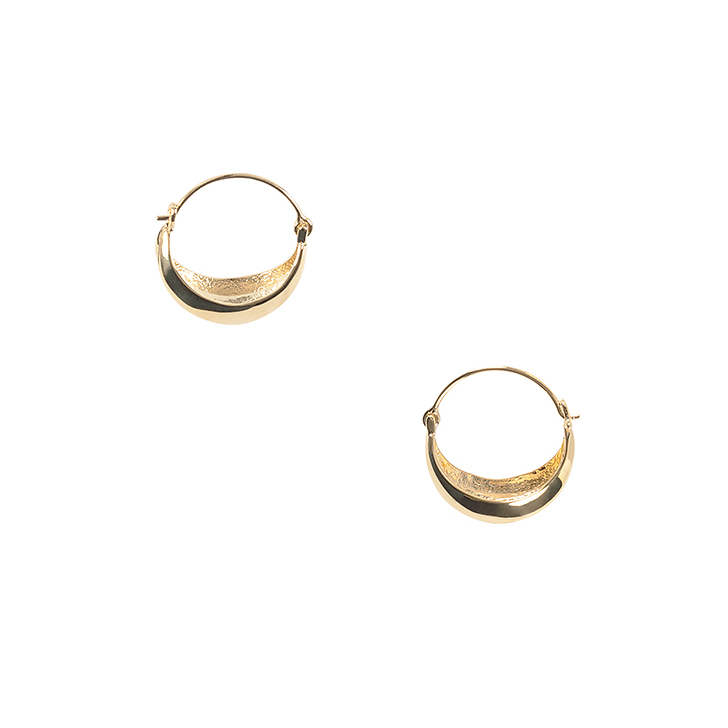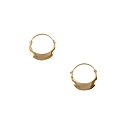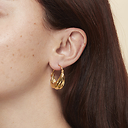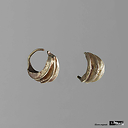Earrings Ribbed crescent
BW400505
Tello (ancient Girsu) - Neo-Sumerian period, ca. 2250 -2000 BC - Gold
Musée du Louvre, Department of Oriental Antiquities, Paris
Founded in the southern part of present-day Iraq in the 4th millennium BC, the Sumerian civilisation gave birth to the world's first writing system and first known cities...
Read more
Tello (ancient Girsu) - Neo-Sumerian period, ca. 2250 -2000 BC - Gold
Musée du Louvre, Department of Oriental Antiquities, Paris
Founded in the southern part of present-day Iraq in the 4th millennium BC, the Sumerian civilisation gave birth to the world's first writing system and first known cities. Its golden age-around 2500 BC-was characterised by displays of wealth that bordered on the ostentatious, resulting from prolific short- and long-distance trade. The city of Ur, which was located in the heart of Sumer and boasted a harbour on the Euphrates River, had trade links with lands along the Persian Gulf on the one side, and Syria on the other.
Situated along a canal connecting the Tigris and Euphrates rivers, the southern Sumerian city of Girsu enjoyed great prosperity throughout the 3rd millennium BC, until the Neo-Sumerian period (mid-22nd century BC-2004 BC).
Ernest de Sarzec's discovery of the city in 1877, and the excavations performed by French expeditions until 1933, brought the Sumerian civilisation back from oblivion.
These earrings are a wonderful testament to the extensive development of gold- and silversmithery in the Near East. Sumerian craftspeople knew how to take advantage of the inherent properties of gold, particularly its ductility, that is, its ability to be drawn out into wire or thread without losing strength or breaking.
Gold plated brass
Close
Login to see prices
Sold by GrandPalaisRmn





